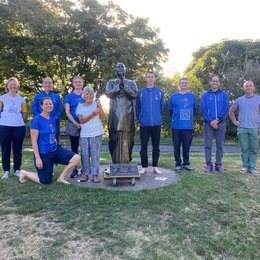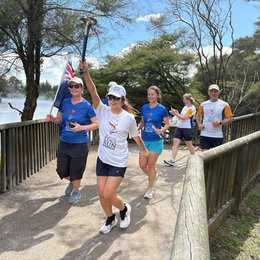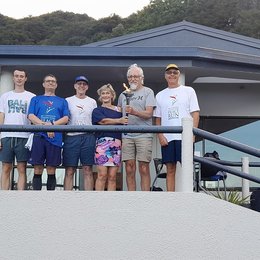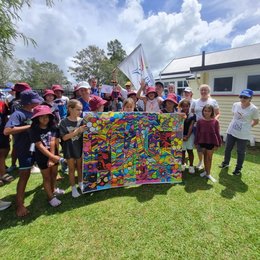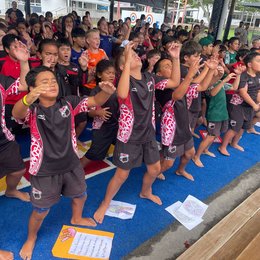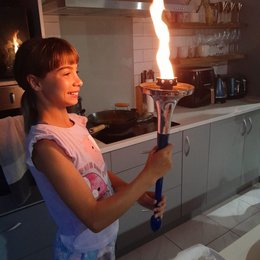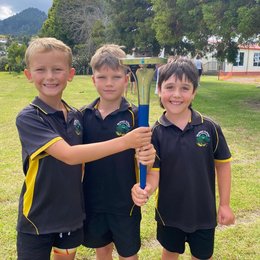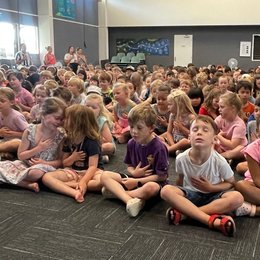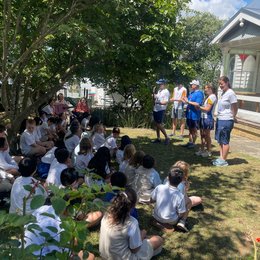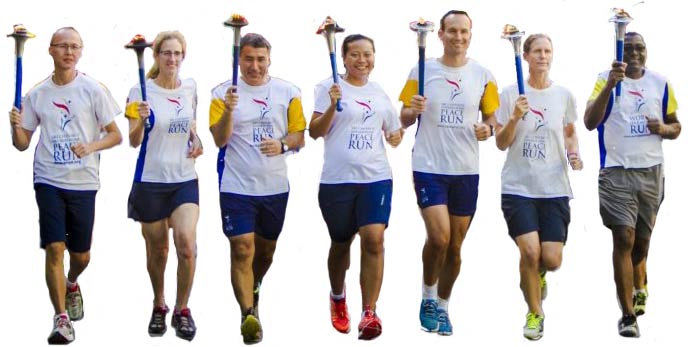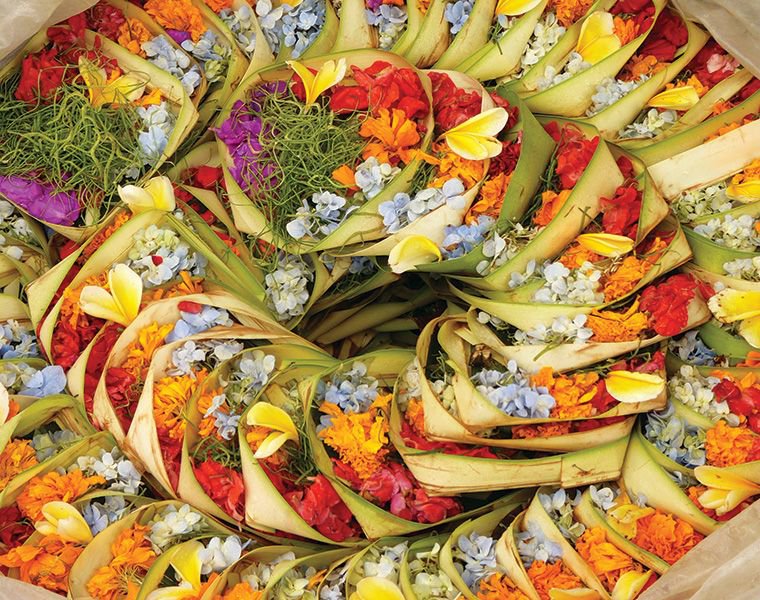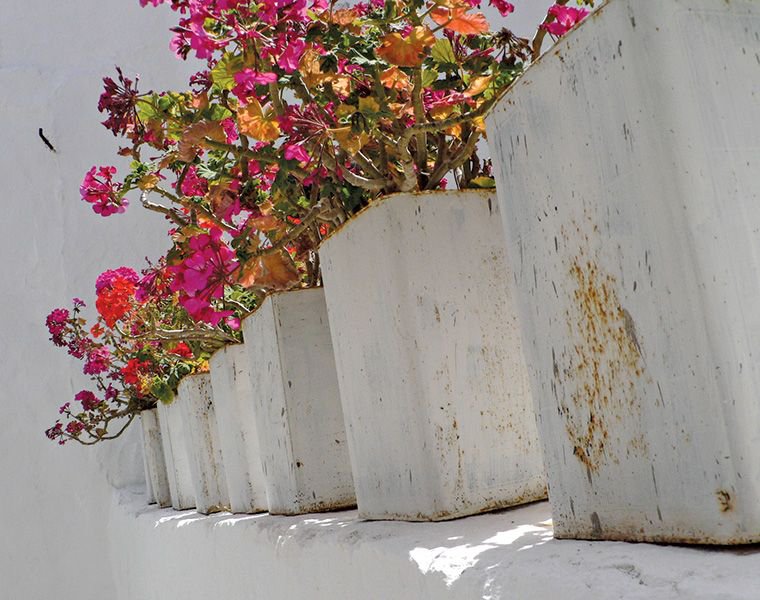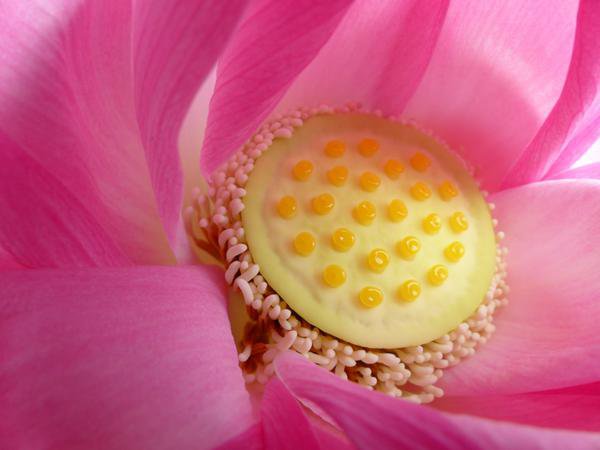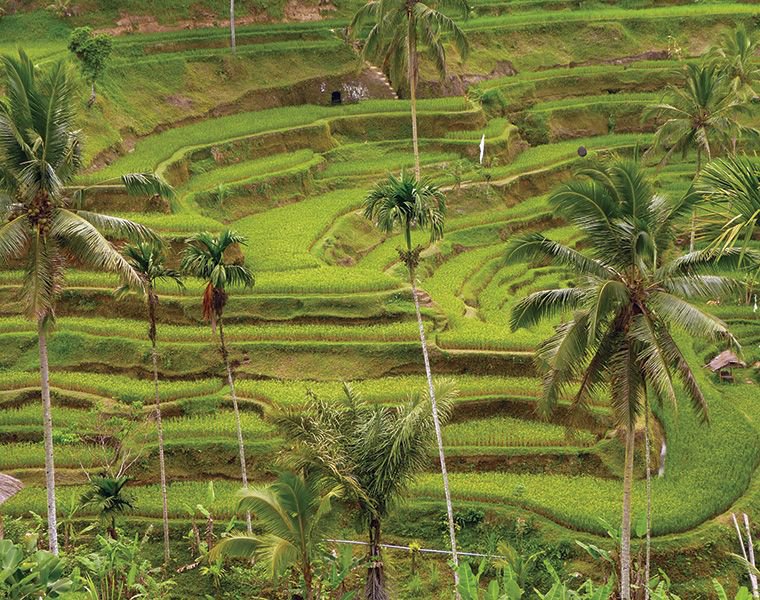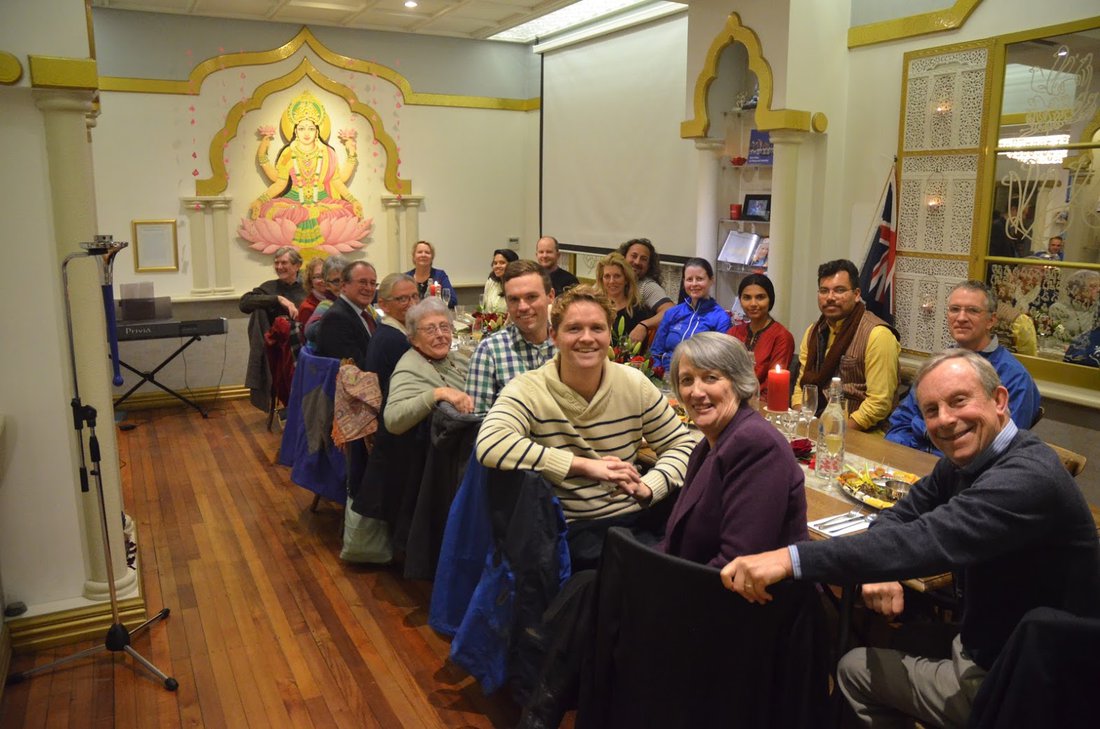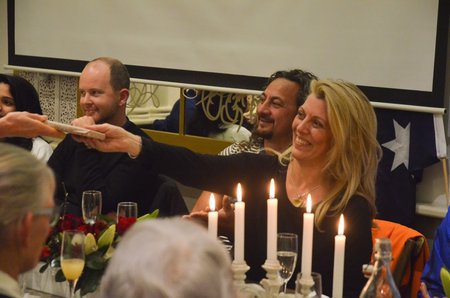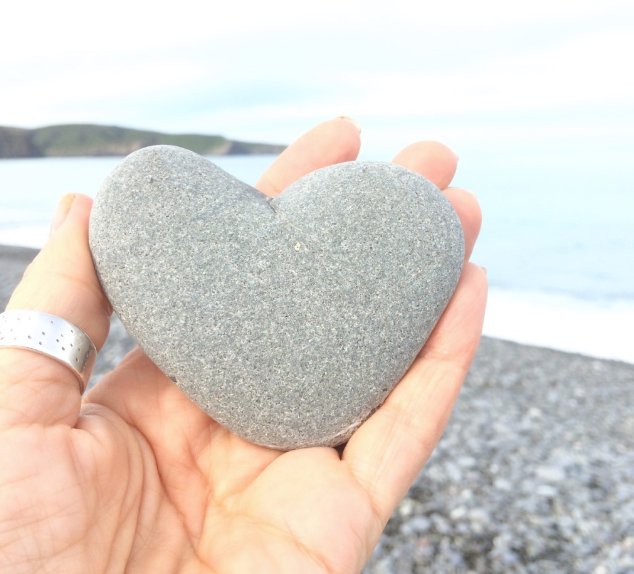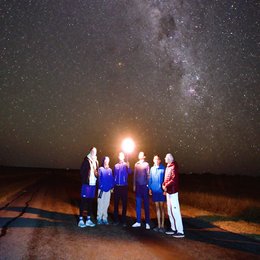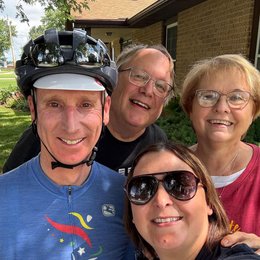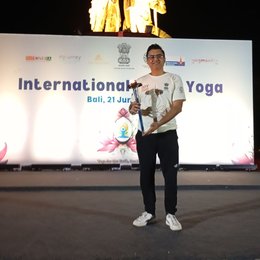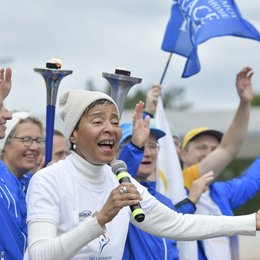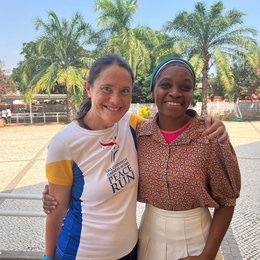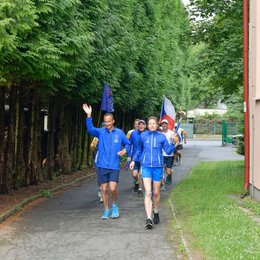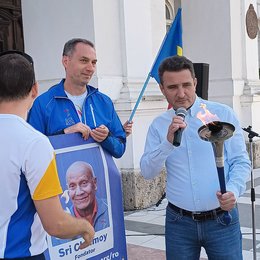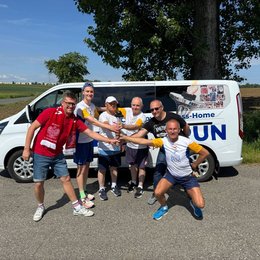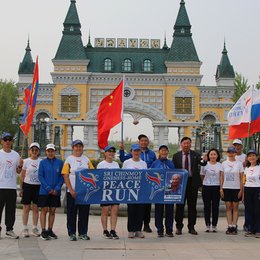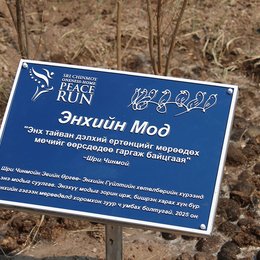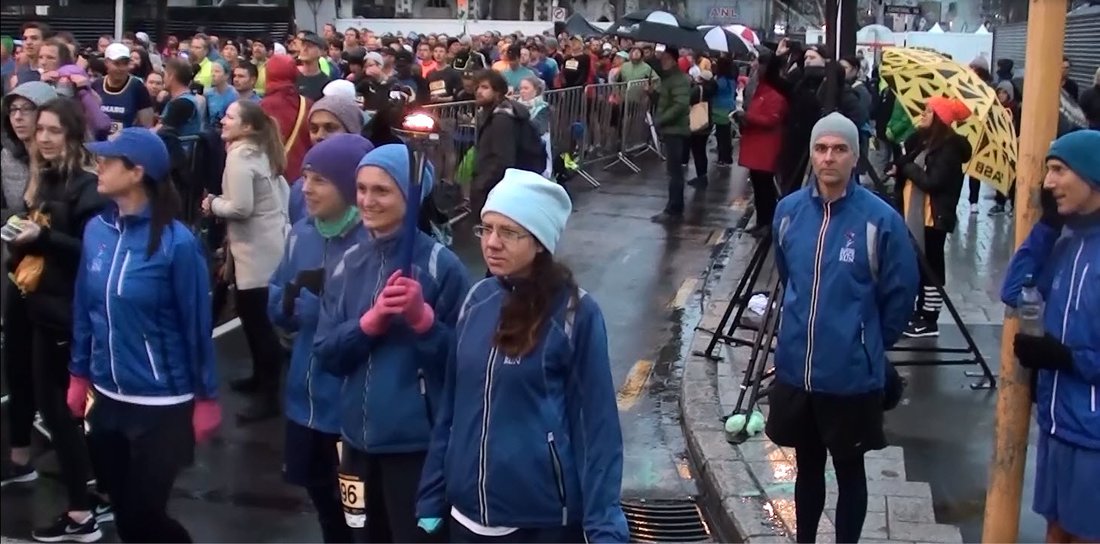
This report is by Susan Marshall, pictured centre front, wearing a blue hat, and running for the Peace Run at the start of the Christchurch Marathon a couple of years ago. As well as coordinating New Zealand Peace Run events, Susan happens to be an excellent runner herself!
Susan's Introduction: "This week I had a most illuminating conversation with Melanie Mayell who hosts regular Death Cafe events in Christchurch.
Those of us who have not been able to make peace with the deaths that have taken place in our lives suffer a great deal. It seems that if we cannot come to terms with death, we will always fear life. As one goes with the other, we have to accept death and it's lessons in order to live fully.
Through the Death Cafe, Melanie does not attempt to answer questions about death but to allow individuals to confront the issues surrounding it that cause disruption to the experience of life. The more I delved into the realities of death and the dying the more I discovered that it was not always a conversation of darkness and loss, but the moments where our lives become most precious and that what we value in the moments of death are the things that we truly value in life.
As of late I personally have begun to see death as one of life's greatest gifts. It reminds me that I am not eternally bound to the entrapments of my personal choices and am in a sense promised freedom from them at some point in time. That is not to absolve me from any responsibility from them considering that I, as a believer in reincarnation, can be assumed to return to the world to which I contributed. It releases me from the personal attachments I have created, but not the influence I affect upon the world. It reminds me that while I – my experiences, my relationships, my achievements – are mortal – the world I leave behind me perpetuates. It transfers my focus from my own personal experiences toward the benefit of the entire world. In that sense, death shows us what is immortal – the peace, the love, the truth we embed in the fabric of life before we leave it.
Through my conversation with Melanie, I come to see that the general lack of awareness around the reality of death in our lives has contributed to increased emotional damage for those faced with it. The Death Cafe does not attempt to answer all questions or heal all the pain associated with death, but to introduce a conversation in a death-denying society that will contribute to a greater feeling of peace around the experience".
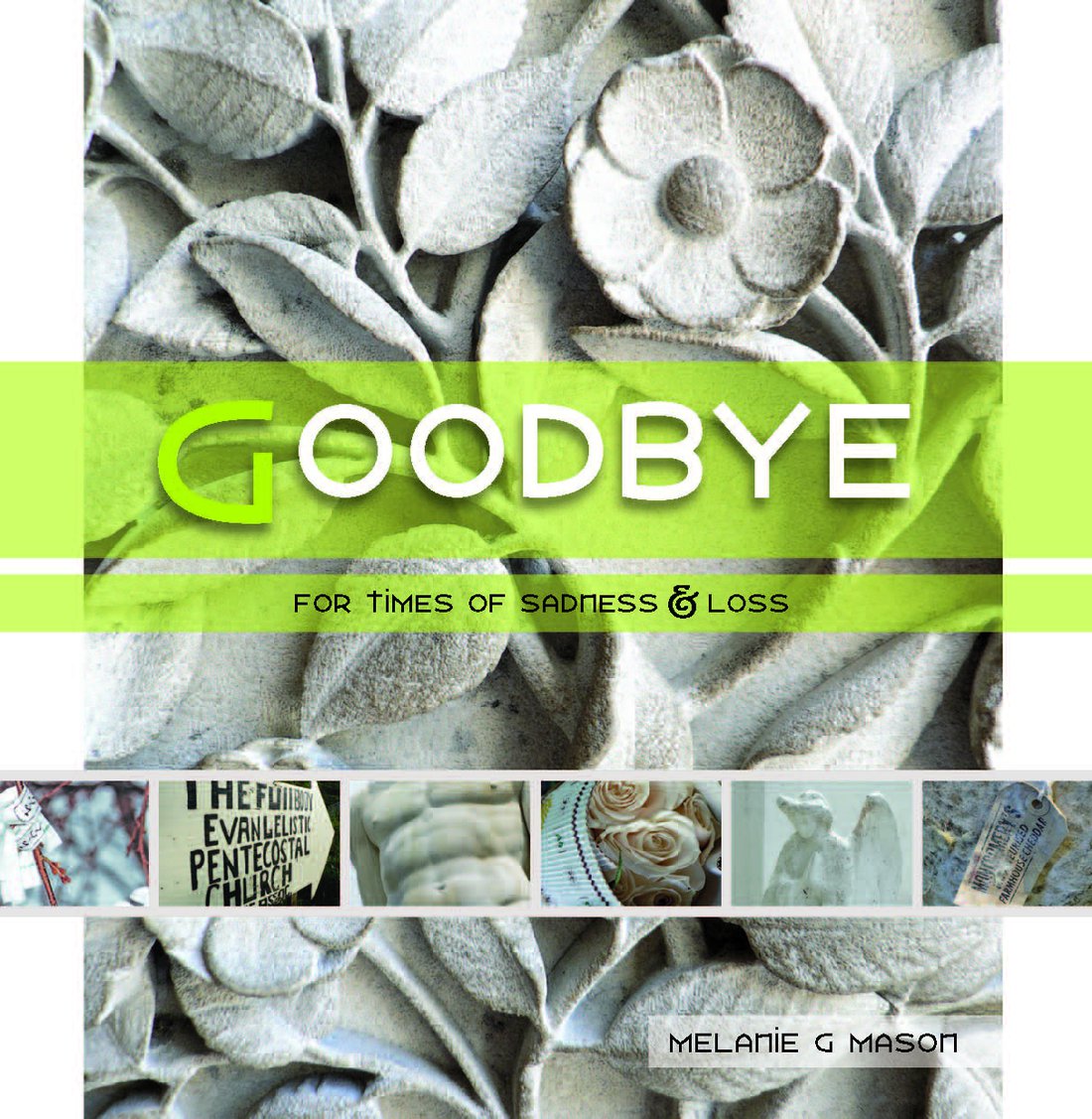
Inspired by her children and with a passion for creativity, Melanie has written and illustrated hundreds of childrens’ books, [some of them edible]. Under her pen name Melanie G Mason, she has published many inspirational editions for family and friends including the timeless ABC of Wishes, Hopes, & Dreams, Goodbye for Times of Sadness & Loss, and Thankyou Living in Gratitude.
Melanie says of herself, "Maybe my greatest passion is philosophy – gaining clarity, insight and understanding as to what, why, who and how it all fits together. I am a seeker of perennial wisdom always looking to get a sense of the bigger picture, to see the patterns and cycles at play and understand my place in the cosmos".
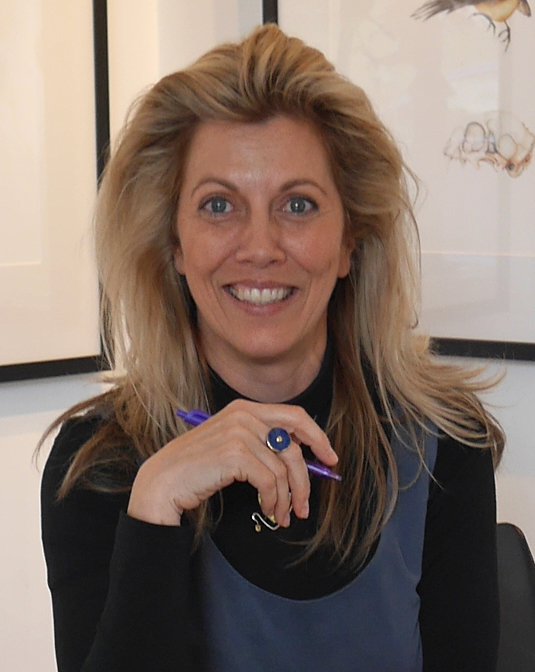
Here is Melanie's story:
Growing up in the 60s and 70s in Pakeha NZ I wasn't exposed to death and funerals. When I was eight years old my granddad died. I got all dressed up to go to the funeral and my mother said, "You're not coming." I felt excluded and left behind and there wasn't any explanation. There wasn't another death in our family for another ten years and as a teenager I didn't know how to behave or how to be with it. I had a strange relationship with death. I found the whole idea of death quite scary and I think it's a common response for people growing up in the same circumstances.
As a photographer I've always sorted my photographs by colour. In 2007 I was drawn to work with my white album because it gave me a sense of peace. I wondered - if they gave me solace maybe there was a creative opportunity to use them for a wider audience. I came up with the Goodbye Book – a collection of images, poetry and inspirational quotes to support people who were going through a loss, whether that be a bereavement, loss of health, loss of a job or relationship breakup. At the start, it was a purely creative exercise. But while working on it, my own marriage ended and my life was thrown into disarray and uncertainty. The project became much more personal, and it ended up supporting me through my own grieving process.
Once the book was published a new conversation began to emerge, something I was completely unprepared for. People began to confide in me sharing sad stories of suffering, sudden death and even suicide. Like many of us who have been in this position, I didn't feel qualified to offer any response. I didn't even feel comfortable listening.
As it kept happening, I asked myself "Why don't I know how to be with people when they are being vulnerable and sharing a loss? This is part of the human experience after all. We are all going to experience loss and death throughout our lives. Shouldn't we be familiar with its language so we can listen to each other, and be present during these experiences?" This lead me to do a certificate in grief support with Dr. Lois Tonkin and thanks to her I learned the basics.
It was from here I discovered my role as an educator in the emerging death positive movement and went on to start the Christchurch Death Café. Death Cafe is a group-directed conversation about death and dying over coffee and cake. Our objective is to increase awareness of death with a view to helping people make the most of their finite lives. We talk about all sorts of things; aging parents, DIY coffins, death doulas, creative things to do with ashes, books we've read, death in different cultures, assisted dying, near-death experiences (NDEs), philosophy and the meaning of life, and our own personal experiences to name a few. We don't promote any particular conclusion, belief system or course of action. I approach each gathering as a beginner full of curiousity. That perspective makes it easy to host the conversation whichever direction it goes in.
120 years ago when towns and villages were smaller, death was handled by the family and the community. We laid out our dead at home, possibly helped by midwives who took care of the comings and the goings. As cities got bigger funeral directors sprung up and we delegated this task. In physically distancing ourselves from caring for our dead we lost our familiarity with death Also our elders get taken care of in aged care facilities and mostly die in hospitals.
With these changes, we became more emotionally detatched. it's less familiar and almost distasteful. Our lack of acceptance means when somebody dies or when someone is dying we don't know what to say or do. People have shared with me [at Death Café] the experience of having someone close to them die and noticing afterwards how friends will actively avoid them. They so afraid of saying the wrong thing, so uncomfortable being around someone who is grieiving.
As we've become death phobic, we've gone the other way. The Western culture is obsessed with youth and vitality. Instead of being present to what is here now, we're looking back and trying to hang onto what has gone. In doing so, we're missing all the wisdom and experience that comes from growing older. We're not looking into the future, or at our mortality and realising that life in this body is finite.
People are scared of even talking about death, scared of the unknown, of dying a painful death, of suffering, of being out of control. It's like we hold a tension without realising it.
At Death Café, participants come away surprised by how positive and upbeat the conversation is. It's very empowering. Just by talking about it we are facing one of the great universal fears, even without coming to any conclusions.
Now that I'm more death accepting and more comfortable with the subject I've become a better friend and a better member of my own little community. When a death happens, rather than thinking "how long can I stay away?" I ask "How soon can I go and offer support?" Rather than being stressed or worried about doing or saying the wrong thing I'm there fully and I'm completely in the moment. I'm willing to pitch in and help do whatever needs to be done, and that makes all the difference. If we don't talk about it we fall into cliches all the time, saying things like 'I'm so sorry for your loss'. We're not being real, we're just repeating stuff that's meaningless.
I would love to have death taught in our schools. I would start in primary school with a focus on the cycles of nature. Death education needs to include grief education, teaching our children that loss is a part of life and that grief is a natural response to loss.
A lot of people think that because I think a lot about death and I run the death cafe that it must be all very morbid and depressing but it's actually the opposite: it gives me such a vitality for life and appreciation for the smallest and sweetest of delights. Life is precious and we shouldn't take anything for granted. Roman stoics used to use "memento mori" to remind them that life was fleeting and death was always coming. In other words, each day let death help us discover what matters most.
There is a story from a man who runs a "Death Hotel" in the sacred Indian city of Varanasi, where many Hindi devotees go to die. After seeing more than 10,000 people die he observed common themes of what they wanted to do before death: the lost son they hadn't seen for 30 or 40 years was who they wanted to see. These were the lessons of the dying: make peace with your friends and family – forgive people. Death teaches us about how to live, and a person's relationship with death tells you a lot about how that person is living their life.
Eckhart Tolle said a "A culture that denies death inevitably becomes shallow and superficial, concerned only with the external form of things" As I've become more death aware, I've become more appreciative of life. I've become much more attuned to the passing seasons. Around us, we are surrounded by cycles in nature. Things live, bloom, reproduce, then die. The dead leaves become the mulch, they feed the ground and around and around it goes. I never wish time away because it's whizzing past so quickly anyway.
Come to a Death Cafe in Christchurch
https://www.meetup.com/ChristchurchDEATHCAFE
Follow us on Facebook
https://www.facebook.com/groups/ChristchurchDeathCafe/
Come to my 2020 Conference
https://www.facebook.com/DeathMattersNZ/
www.deathmatters.nz
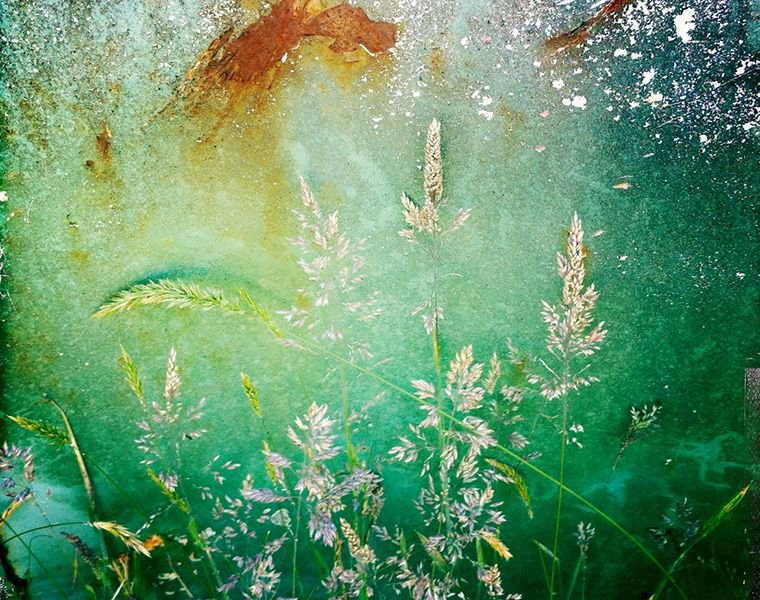
Do not stand at my grave and weep,
I am not there, I do not sleep.
I am a thousand winds that blow.
I am the diamond glint on snow.
I am the sunlight on ripened grain.
I am the gentle autumn rain.
When you wake in the morning hush,
I am the swift, uplifting rush
Of quiet birds in circling flight.
I am the soft starlight at night.
Do not stand at my grave and weep.
I am not there, I do not sleep.
Do not stand at my grave and cry.
I am not there, I did not die!
—Mary Frye (1932)

